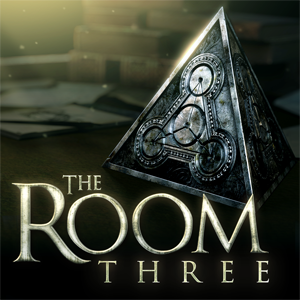
Puzzle video games make up a broad genre of video games that emphasize puzzle solving. The types of puzzles can test problem-solving skills, including logic, pattern recognition, sequence solving, spatial recognition, and word completion. Many puzzle games involve a real-time element and require quick thinking, such as Tetris (1985) and Lemmings (1991).

Touch Detective or Mystery Detective in Europe is a point-and-click mystery adventure game for the Nintendo DS which makes use of the device's touch screen. It was developed by BeeWorks and released in Japan by Success Corporation. It was published in the United States by Atlus USA, and in the PAL region by 505 Games. Touch Detective was released for the iOS on August 4, 2011. Its first chapter is free to download. The game was released for Nintendo Switch as part of a compilation game titled Touch Detective 3 + The Complete Case Files, for Japan in October 2022, and worldwide in March 2024.

Braid is an indie puzzle-platform video game developed by Number None. The game was originally released in August 2008 for the Xbox 360's Xbox Live Arcade service. Ports were developed and released for Microsoft Windows in April 2009, Mac OS X in May 2009, PlayStation 3 in November 2009, and Linux in December 2010. Jonathan Blow designed the game as a personal critique of contemporary trends in video game development. He self-funded the three-year project, working with webcomic artist David Hellman to develop the artwork.
Mystery Case Files is a video game series originally developed by the internal studios of Big Fish Games. Sequels were then developed by Elephant Games between 2013 and 2014 and Eipix Entertainment between 2015 and 2019. The newest installments are developed by GrandMA Studios since 2020. The Mystery Case Files series is known for its hidden object puzzles where, in order to progress through a game, the player plays the role of a Master Detective and must find a certain number of items hidden somewhere on a painted scene.

Boomzap Entertainment is a casual games developer registered in Singapore with a virtual office environment. It was formed in 2005 and has released 50 games to date that are ported on various platforms. Boomzap has developed for Microsoft Windows, Mac OS X, Nintendo DS, Wii, iOS, and Android. Its games are available on games portals such as Big Fish Games, Yahoo!, WildTangent, GameHouse, Google Play, Amazon, iTunes, Steam and others.

Temple Run is an endless runner video game developed and published by Imangi Studios. The player controls an explorer who has obtained an ancient relic and runs from demonic monkey-like creatures chasing him. The game was initially released for iOS devices on August 4, 2011, and later ported to Android systems and Windows Phone 8.
Madfinger Games is a Czech publisher and developer of video games headquartered in Brno. Known as the authors of a series of games Dead Trigger, Samurai, Shadowgun and many others. The studio is made up of experienced developers who have worked on games such as Mafia: The City of Lost Heaven, Vietcong and Hidden & Dangerous 2.

Thomas Was Alone is a puzzle-platform game created by Mike Bithell, originally released as a Flash-based browser game in October 2010. The game was expanded and released for Microsoft Windows and OS X in July 2012. It has subsequently been released for Linux, PlayStation 3, PlayStation 4, PlayStation Vita, Xbox One, Wii U, iOS, Android and Nintendo Switch. In the game, the player controls one or more simple rectangles representing several out-of-control artificial intelligence entities, working with the shapes to get each to their individual end points on each level. Each shape is characterized by a unique name and personality, including the eponymous Thomas, which is conveyed to the player through the use of a narrator voiced by Danny Wallace, whose performance earned the game a BAFTA Games Award.

Oceanhorn: Monster of Uncharted Seas is an action-adventure video game developed by Finnish studio Cornfox & Bros. It focuses on an unnamed boy protagonist's quest to find his lost father and defeat the living fortress, Oceanhorn. It was first released for iOS in November 2013, and later had ports for Android, Microsoft Windows, macOS, PlayStation 4, Xbox One, Nintendo Switch and PlayStation Vita.

Monument Valley is a puzzle and indie game by Ustwo Games. The player leads the princess Ida through mazes of optical illusions and impossible objects while manipulating the world around her to reach various platforms. Monument Valley was developed over ten months beginning in early 2013 based on concept drawings by company artist Ken Wong. Its visual style was inspired by Japanese prints, minimalist sculpture, and indie games Windosill, Fez, and Sword & Sworcery, and was compared by critics to M. C. Escher drawings and Echochrome. The art was designed such that each frame would be worthy of public display.

Gasketball is a basketball-themed puzzle video game for the iPad by Mikengreg, an independent development team of Michael Boxleiter and Greg Wohlwend. Players flick basketballs through 2D physics puzzles into the hoop in single-player, local multiplayer, and asynchronous HORSE-style online multiplayer modes. The game is free-to-play with in-app purchases. Development began in mid 2011 following Mikengreg's successful Solipskier. They were able to live from the earnings for Gasketball's two year development at their previous salary, which afforded them the stability to try new avenues and reject prototypes, though they worked 100-hour weeks. Towards the end of their development, they ran out of money and lived on the couches of friends. It was released on August 9, 2012, and the game did not reach their desired conversion rate at the time of launch.

Greg Wohlwend is an American independent video game developer and artist whose games include Threes! and Ridiculous Fishing. He originally formed Intuition Games with Iowa State University classmate Mike Boxleiter in 2007 where they worked on Dinowaurs and other small Adobe Flash games. Trained as an artist, Wohlwend worked mainly on the visual assets. As Mikengreg, they released Solipskier, whose success let the two take a more experimental approach with Gasketball, which did not fare as well. At the same time, Wohlwend collaborated with Asher Vollmer to make Puzzlejuice, and with Adam Saltsman to make Hundreds based on Wohlwend's first game design. He later released Threes! with Vollmer in 2014 to critical acclaim. His later games TouchTone and TumbleSeed were also the products of collaborations. Wohlwend was named among Forbes' 2014 "30 under 30" in the games industry.

Hundreds is a puzzle video game where players touch circles to make them grow without overlapping. In the game's 100 levels, the player interacts with different types of circles to bring a counter to the number 100. The game was developed and published by Semi Secret Software in collaboration with Greg Wohlwend and was released for iOS on January 7, 2013, and on Android later that year.

Asher Vollmer is an American indie video game developer. He created Puzzlejuice and Threes. Vollmer also worked on Guildlings and Beast Breaker.

Blek is a 2013 puzzle video game for iOS and Android by Kunabi Brother, a team of brothers Denis and Davor Mikan. The player draws a snakelike black line that recurs in pattern and velocity across the screen to remove colored dots and avoid black dots. It is minimalist in design, features excerpts of Erin Gee, and takes inspiration from Golan Levin, the Bauhaus, and Japanese calligraphy. The brothers designed the game as a touchscreen adaptation of the Snake concept and worked on the game for over six months. It was released in December 2013 for iPad, and was later released for other iOS devices and Android.

The Room Three is a puzzle video game developed by Fireproof Games. It was released for iOS in November 2015, Android in January 2016 and Microsoft Windows in November 2018.

Windosill is a 2009 puzzle video game by Vectorpark for Microsoft Windows, OS X, Linux, web browsers, and iOS. The player advances through eleven different rooms by interacting with each level's environmental objects. It was developed by Patrick Smith, an artist who taught himself to animate and program the game in Adobe Flash. He was inspired by a variety of painters and artists. The game was first released for Windows, OS X, and web browsers in 2009, and was later ported to the iPad in 2011, with several added features.

The Room: Old Sins or The Room 4: Old Sins is a puzzle video game developed by Fireproof Games, and the fourth game in their series, The Room. It was released for mobile platforms in January 2018 and Windows in February 2021.

The House of Da Vinci is a 2017 puzzle adventure game developed by Slovak indie studio Blue Brain Games. The game is based on fictional events set during the Renaissance.

Baba Is You is a puzzle video game created by Finnish independent developer Arvi Teikari. The game centers around the manipulation of "rules"—represented in the play area by movable tiles with words written on them—in order to allow the player character, usually the titular Baba, to reach a specified goal. Originating as a short demo built for the 2017 Nordic Game Jam, the game was expanded and released on 13 March 2019 for PC and Nintendo Switch. Mobile versions were released in June 2021. A free update titled "Baba Make Level" was released on November 17, 2021, featuring 250 new and previously unused levels and a level editor with online sharing. Baba Is You received generally favorable reviews from critics.















